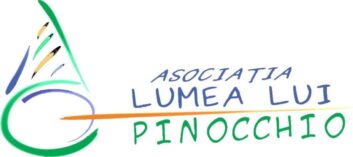Home - Statute
Statute
CHAPTER I
NAME, LEGAL NATURE, HEADQUARTERS, DURATION
Art. 1. The name of this association is “ROM FOR ROM” and it is constituted as a legal entity under private law, pursuant to O.G. no. 26 2000 and established by the will of its associates:
Ms. DUMITRU VIORICA, Romanian citizen, born on 31.01.1976, domiciled in Panciu, Cuza Voda str. no. 37, Vrancea county, holder of VN serial no. 046459, issued by the Panciu Police, on 19.07.2000
Ms. FRANCESCA DIMALLIO. Italian citizen, born on 29.09.1941, domiciled in Italy, Via San Dionigi, 11 23870 CernuscoLombardone (LC), holder of passport series 988657R, issued by the Questura in Firenze;
Mister. DANIELE ANTONIOZZI, Italian citizen, born on 16.09.1973, knows the Romanian language, domiciled in Italy, Corso Italia, 118, 62022 Castelraimondo (MC), holder of passport series 722838M, issued by the Questura of Macerata;
Art. 2. The association “ROMA FOR ROMA”, in short “ASOCIATIA”, is a non-governmental organization, without political or patrimonial goals, established through the free association of its members, pursuing the promotion and development of the Roma in all possible dimensions.
Art. 3. The association is based in Romania, Panciu, Cuza Voda str. no. 37, Vrancea county, being able to open branches in the country and abroad.
Art. 4. The “ROM FOR ROM” association is established for an unlimited period.
CHAPTER II
PURPOSE AND OBJECT OF ACTIVITY OF THE ASSOCIATION
Art. 5. The association “ROME FOR ROMA” is a non-profit association and its main purpose of its activity is the contribution and development of the Roma in all possible dimensions and the development of the idea of volunteering, as an expression of social solidarity, to support the youth, in general.
Art. 6. The object of activity of the association is:
to improve the situation of the Roma, from a social, economic and cultural point of view;
to positively influence the Romanian society, in order to reduce the prejudices related to the Roma community;
to promote and support any initiative, from any natural or legal person, related to the improvement of the social, educational, cultural and artistic condition of the Roma;
to promote and spread the expression “Roma identity;
to improve the relations between the Roma communities and between them and the authorities;
to promote the idea of volunteering, to support the youth, in general.
CHAPTER III
Heritage
Art. 7. On the date of establishment of the “ROMPENTRU ROM” Association, its patrimony consists of the sum of 4,000,000 lei and is constituted by the equal contribution, in cash, of the associated members of the association
Art. 8. The assets of the Association will increase, through the contribution of the new members of the association. The social share will be established, annually, by the General Assembly, upon the approval of the balance sheet.
Art. 9. The funds of the “ROM FOR ROM” Association consist of income obtained from own activities, monetary and material donations from natural or legal persons, from other types of donations, as well as bequests, subsidies, sponsorships, other funds collected, in the country or in abroad, from natural or legal persons.
Art. 10. The patrimonial resources and income are used, obligatorily, to achieve the purpose of the Association
Art. 11. The Association’s expenses concern the provision of operating conditions and mainly include:
- organization of contests, shows, congresses, conferences, etc.;
- those related to the endowment of the Association headquarters;
- ensuring the operation of the library, the publications and the acquisition of the necessary documents, the rental of goods;
- other unforeseen expenses, carried out in compliance with the provisions of this statute and of the constitutional act, as well as the legal provisions.
Art. 12. Donations and legacies can have as their object sums of money, movable and immovable goods, copyrights, shares, securities or other rights, if they are free of any encumbrances. Donations will be registered in the donation register of the association.
Art. 13. Donations can be unconditional or conditional on the achievement of a certain goal. If they are not in accordance with the purpose and activity of the association, the General Assembly can refuse any donation or bequest, offered in unacceptable terms or that contravene the provisions of this statute.
CHAPTER IV
MEMBERS
Art. 14. The members of the association are all those who join the association, being in complete agreement with the provisions of the association Statute, with the purpose and object of its activity, contributing together with the associated members to the smooth running of the association.
Art. 15. Associate members are people who participated in the establishment of the association and function as such in the documents intended for its legal registration. They are three in number, according to the Constitutive Act.
Art. 16. The members of the Association can become the persons who adhere to the “ROM FOR ROM” Association Statute and act to fulfill its objectives.
The registration application is submitted to the Association headquarters and must be approved by the Board of Directors, with a simple majority of the votes of its members.
Membership of the Association is personal and inalienable. Members can leave the Association at any time, provided they communicate their decision to the Board of Directors.
Art. 17. The members of the Association have the following rights:
- to take part in the events organized by the Association and participate in discussions;
- they are elected and to be elected to the Board of Directors, if they meet the legal conditions in force;
- to participate, as representatives of the Association, at congresses, conferences, meetings, in the country and abroad;
- other rights established by the General Assembly.
Art. 18. The members of the Association have the following obligations:
to pay the membership fee;
to comply with the provisions of the constitutive act and of this statute.
Art. 19. The members of the Association can lose this membership status and can be excluded by:
- death;
- written resignations;
- non-payment of the contribution for a quarter;
- committing antisocial acts or if they are guilty of criminal acts;
- the reasoned decision of the Board of Directors, for actions or inactions that contradict the purpose of the Association.
CHAPTER V
ORGANIZATION, MANAGEMENT, CONTROL
Art. 20. The bodies of the association are:
a. The general meeting;
b. The board of directors;
c. the censor.
a. The general assembly
Art. 21. The general assembly is the governing body, made up of all the associates.
Art. 22. The general assembly is made up of associated members with voting rights.
Art. 23. In the event that, due to a major act or accidental event, one of the members of the General Assembly does not
can temporarily exercise the capacity of member, can be represented by another associate, appointed based on a written delegation.
The general meeting meets at least once a year and is convened by the Board of Directors, at least until April 30 and has the right to permanent control over the activity of the Board of Directors and the censor.
Art. 24. In the ordinary meeting, the General Assembly deliberates on:
a. Establishing the strategy and general objectives of the association;
b. Approving the income and expenditure budget and the accounting balance sheet;
c. Election and revocation of members of the board of directors;
d. Election and revocation of the censor,
e. Establishment of branches;
f. Decides on the admission or exclusion of association members;
g. Horataste regarding the association’s investments;
h. Decides on the prosecution of any member of the Board of Directors, for any damages caused to the association, due to his fault.
The general assembly deliberates, in the extraordinary meeting, on:
a. Amendments to the constitutive act and statute;
b. The dissolution and liquidation of the Association and the determination of the destination of the assets left after the liquidation.
Art. 25. Both in the ordinary meeting and in the extraordinary meeting, the Assembly is valid, at the first convocation, if at least half plus one of the associates are present. The second summons is valid, regardless of the number of those present. In the ordinary meeting, the decisions are taken as follows: in the ordinary meeting – with the simple majority of those present, and in the extraordinary meeting – with the majority of 2/3 of those present. Decisions regarding the dissolution and liquidation of the Association are taken by the vote of half plus one of the number of associates.
c. The board of directors
Art. 26. The Board of Directors is the executive governing body of the Association and ensures the implementation of the decisions of the General Assembly. It consists of an odd number of members, but not less than 3, elected by the General Assembly, by secret ballot, for a period of two years. Persons who do not have the status of associate cannot be elected as members of the Board of Directors.
Art. 27. The members of the board of directors can be re-elected.
Art. 28. The board of directors elects, from among its members, a president, a vice-president and a member
Art. 29. The members of the Board of Directors are responsible for their activity, under the conditions of the law.
Art. 30. The duties of the Board of Directors are:
Convene the ordinary and extraordinary General Assembly and draw up the agenda;
Present to the General Assembly the activity report, for the previous period, the execution of the income and expenditure budget, the accounting balance, the draft income and expenditure budget and the draft of the association’s programs;
Proposes to the General Assembly the draft of the internal regulation of the Association and makes proposals to change the statute;
Ensures the operational management of the Association, between the General Assemblies and carries out its administrative acts;
Deliberate on the admission and exclusion of associates;
Ensures the preparation of the balance sheet and the budget of income and expenses, which he says for approval to the General Assembly;
Any other duties and tasks established by the General Assembly.
The board of directors intervenes at the convocation of the president or at the request of at least two members. Decisions are taken in the presence of that little half plus one of the council members. In case of a tie, the vote of the person presiding is decisive.
The President oversees the execution of the deliberations of the General Assembly and the Board of Directors.
The president represents, from a legal point of view, the Association and concludes legal acts, in the name and on behalf of the association. He is assisted by the vice president, who replaces him in case of absence. Or another impossibility.
The president or, as the case may be, the vice president, is directly responsible for his decisions.
c) The censor
Art. 31. The censor is obliged to examine, at least once per semester, the accounts of the Association and inform the Board of Directors and the General Assembly.
CHAPTER VI
MANAGEMENT OF THE ASSOCIATION
Art. 33. The management of the “ROM FOR ROM” Association is carried out in accordance with the legislation in force. The financial exercise slows down to ! January and ends on December 31, with the exception of the first financial exercise, which ends on the date of registration of the association in the Register of Associations and Foundations.
Art. 34. The financial management is handled by an authorized accountant, being controlled by the censor and subject to the approval of the General Assembly.
Art. 35. The “ROM FOR ROM” association can have both accounts in lei and accounts in foreign currency.
CHAPTER VII
FINAL PROVISIONS
Art. 36. Changes and additions to this statute, as well as changes regarding the headquarters of the association or its subsidiaries, from the country and abroad, are made only after the decision of the General Assembly.
Art. 37. The “ROM FOR ROM” association has its own stamp.
Art. 38. The association is dissolved by the decision of the General Assembly, which will also include the persons designated as liquidators. Within 15 days from the date of the dissolution meeting, the minutes, in authentic form, are submitted to the court in whose territorial constituency it is based, to be entered in the Register of Associations and Foundations.
In case of dissolution of the association, the assets left after the liquidation cannot be transferred to natural persons, but only to legal persons under private law or public law, with identical or similar purpose, by decision of the Board of Directors.
Art. 39. This statute is supplemented by the legal provisions in force.
Art. 40. Drafted and processed in 3 copies, at the Office of the Notary Public CONDRUT OANA-FRANCESCA – PANCIU.
DATED: November 29, 2001


